
The Konkan Railway is one of the 19 railway zones in India with its headquarters at CBD Belapur in Navi Mumbai, Maharashtra, India. The first passenger train ran on Konkan railway tracks on 20 March 1993, between Udupi and Mangalore. During its initial years of operation in the mountainous Konkan region, a number of accidents prompted Konkan Railway to implement new technology. Anti-collision devices, the Sky Bus and roll-on/roll-off are several of the railway's innovations. The 756.25 km (469.91 mi) long railway line connects the states of Maharashtra, Goa and Karnataka. The first train on the completed track was sent off on 26 January 1998.

Suresh Channabasappa Angadi was an Indian politician who served as the Union Minister of State for Railways of India from 30 May 2019 to 23 September 2020. He was Member of Parliament, Lok Sabha from 2004 to September 2020. He was a leader of the Bharatiya Janata Party from Karnataka.

The Maharashtra Navnirman Sena is a Regionalist far-right Indian political party based in the state of Maharashtra and operates on the ideology of Hindutva and Marathi Manus. It was founded on 9 March 2006 in Mumbai by Raj Thackeray after he left the Shiv Sena party due to differences with his cousin Uddhav Thackeray, who later became the 19th Chief Minister Of Maharashtra and to his sidelining by the Shiv Sena in major decisions like distribution of election tickets.
Labour in India refers to employment in the economy of India. In 2020, there were around 476.67 million workers in India, the second largest after China. Out of which, agriculture industry consist of 41.19%, industry sector consist of 26.18% and service sector consist 32.33% of total labour force. Of these over 94 percent work in unincorporated, unorganised enterprises ranging from pushcart vendors to home-based diamond and gem polishing operations. The organised sector includes workers employed by the government, state-owned enterprises and private sector enterprises. In 2008, the organised sector employed 27.5 million workers, of which 17.3 million worked for government or government owned entities.

The 2008 attacks on Uttar Pradeshi and Bihari migrants in Maharashtra began on 3 February 2008 after violent clashes between workers of two political parties—Maharashtra Navnirman Sena (MNS) and Samajwadi Party (SP)—at Dadar in Mumbai, capital of the Indian state of Maharashtra. The clashes took place when workers of MNS, a splinter faction formed out of the Shiv Sena, tried to attack workers of SP, the regional party based in Uttar Pradesh, who were proceeding to attend a rally organised by the United National Progressive Alliance (UNPA). Defending his party's stand, MNS chief Raj Thackeray explained that the attack was a reaction to the "provocative and unnecessary show of strength" and "uncontrolled political and cultural dadagiri (bullying) of Uttar Pradesh and Bihar migrants and their leaders".
Anti-Bihari Racism refers to the large scale racism in India against the people of the State of Bihar, and it often gets brushed under the carpet without being highlighted like the North-South Divide, or the Hindu-Muslim debate. Unlike those two, and many other topics, the widespread racist undercurrent against the people from Bihar doesn't get discussed enough. Bihar had slower economic growth than the rest of India in the 1990s which led to Biharis migrating to other parts of India in search of opportunities. Bihari migrant workers have been subject to a growing degree of hatred by the locals of those states because of their stereotyping as criminals, rapists and traitors. Moreover, the Biharis have been victimized due to the growing anti-Hindi imposition sentiment in non-Hindi states owing to the Central government agencies excluding regional languages in many national exams and services.

Nizam's Guaranteed State Railway (NGSR) was a railway company operating in India from 1879 to 1950. It was owned by the Nizams of Hyderabad State, and its full name was His Exalted Highness, The Nizam's Guaranteed State Railway. The company began with a line built privately by the HEH, the Nizam, which was owned and operated by the company under a guarantee from the Hyderabad State, much to the dismay of the British authorities. Capital for the line was raised by issuing redeemable mortgage debentures. The Nizam's railway was eventually consolidated with the Hyderabad-Godavari Valley Railway (HGVR). In 1951, both the NGSR and the HGVR were nationalised and merged into Indian Railways.
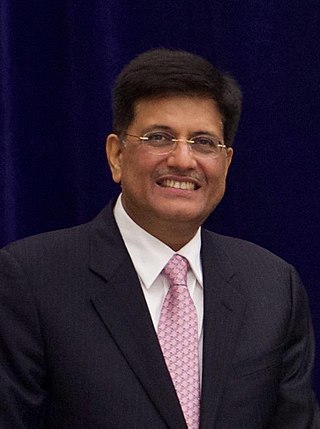
Piyush Vedprakash Goyal is an Indian politician and chartered accountant serving as a cabinet minister in the Government of India, having portfolios such as Minister of Textiles, Minister of Commerce and Industry and Minister of Consumer Affairs, Food and Public Distribution. He was elevated to the Cabinet Minister position on 3 September 2017. Currently a Member of Parliament for Rajya Sabha from the state of Maharashtra, he is also the current Leader of the House in Rajya Sabha.
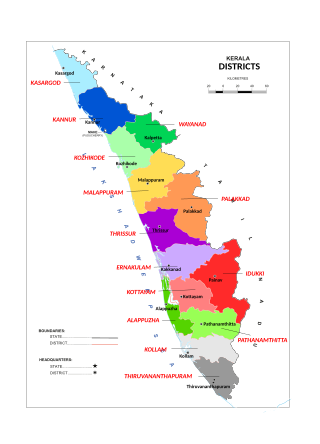
Migrant labourers in Kerala, India's southernmost state, are a significant economic force in the state; there were around 2.5 million internal migrants in Kerala according to a 2013 study by the Gulati Institute of Finance and Taxation. Every year, the migrant worker population in Kerala increases by 2.35 lakh (235,000) people. The study, based on long-distance trains terminating in Kerala, does not cover migrants from the neighbouring states who use other modes of transport. Assuming that the estimation is rigorous and extrapolating it, taking into account the net annual addition, possible growth in migration rate, as well as accounting for the migration from the neighbouring states, Kerala is likely to have 5 to 5.5 million inter-state migrant workers in 2020. Despite their importance and despite many of them praising the state for its welfare schemes and environment, they are often ignored in comparison and suffer from comparatively poor living conditions.
Events in the year 2020 in India.

The COVID-19 pandemic in India is a part of the worldwide pandemic of coronavirus disease 2019 caused by severe acute respiratory syndrome coronavirus 2. As of 28 February 2024, according to Indian government figures, India has the second-highest number of confirmed cases in the world with 45,028,053 reported cases of COVID-19 infection and the third-highest number of COVID-19 deaths at 533,472 deaths. In October 2021, the World Health Organization estimated 4.7 million excess deaths, both directly and indirectly related to COVID-19 to have taken place in India.

The first case of the COVID-19 pandemic in the Indian state of Maharashtra was confirmed on 9 March 2020.

COVID-19 Pandemic spread to Uttar Pradesh in March 2020. While the World Health Organization praised the UP government for its contact tracing efforts, there were several other issues in its management of the pandemic, including under reportage of cases by the government, vaccine shortages and dismal conditions of COVID-19 hospitals.
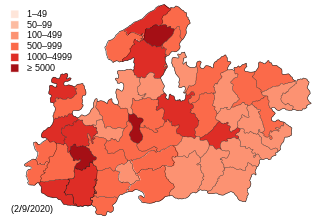
The first four cases of the COVID-19 pandemic in Jabalpur, Madhya Pradesh were confirmed on March 20, 2020. As of August 14, 2021, Madhya Pradesh has confirmed a total of 791,998 cases, and has recorded 10,514 deaths.
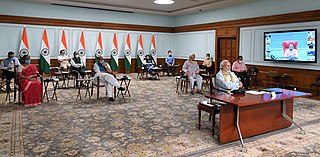
The Indian state governments have responded to the COVID-19 pandemic in India with various declarations of emergency, closure of institutions and public meeting places, and other restrictions intended to contain the spread of the virus.
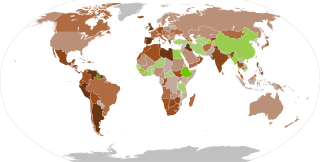
The economic impact of the COVID-19 pandemic in India has been largely disruptive. India's growth in the fourth quarter of the fiscal year 2020 went down to 3.1% according to the Ministry of Statistics. The Chief Economic Adviser to the Government of India said that this drop is mainly due to the coronavirus pandemic effect on the Indian economy. Notably, India had also been witnessing a pre-pandemic slowdown, and according to the World Bank, the current pandemic has "magnified pre-existing risks to India's economic outlook".

On the evening of 24 March 2020, the Government of India ordered a nationwide lockdown for 21 days, limiting the movement of the entire 1.38 billion population of India as a preventive measure against the COVID-19 pandemic in India. It was ordered after a 14-hour voluntary public curfew on 22 March, followed by enforcement of a series of regulations in the countries COVID-19 affected regions. The lockdown was placed when the number of confirmed positive coronavirus cases in India was approximately 500. Upon its announcement, a mass movement of people across the country was described as the largest since the partition of India in 1947. Observers stated that the lockdown had slowed the growth rate of the pandemic by 6 April to a rate of doubling every six days, and by 18 April, to a rate of doubling every eight days. As the end of the first lockdown period approached, state governments and other advisory committees recommended extending the lockdown. The governments of Odisha and Punjab extended the state lockdowns to 1 May. Maharashtra, Karnataka, West Bengal, and Telangana followed suit. On 14 April, Prime minister Narendra Modi extended the nationwide lockdown until 3 May, on the written recommendation of governors and lieutenant governors of all the states, with conditional relaxations after 20 April for the regions where the spread had been contained or was minimal.

The first COVID-19 case in the Indian state of Bihar was reported in Munger on 22 March 2020, a 38-year-old tested positive for COVID-19, he was also the first victim. He had travel history to Qatar. The Ministry of Health and Family Welfare has confirmed a total of 62,031 cases as of 4 August 2020, including 20,922 active cases, 349 deaths and 40,760 recoveries. The virus has spread in 38 districts of the state, of which Patna district has the highest number of cases.

Indian migrant workers during the COVID-19 pandemic have faced multiple hardships. With factories and workplaces shut down due to the lockdown imposed in the country, millions of migrant workers had to deal with the loss of income, food shortages and uncertainty about their future. Following this, many of them and their families went hungry. Thousands of them then began walking back home, with no means of transport due to the lockdown. A study found that 43.3 million interstate migrants returned to their home during the first wave of Covid-19 led lockdowns and out of 43.3 million around 35 million walked home or used unusual means of transportation. In response, the Central and State Governments took various measures to help them, and later arranged transport for them. 198 migrant workers died due to the lockdown, with reasons of road accidents.
















